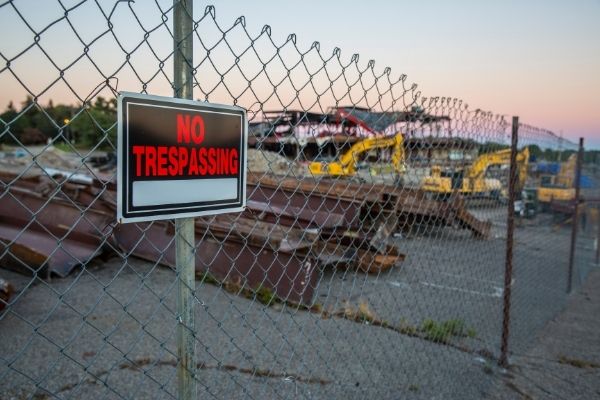Florida property owners have a legal obligation to maintain a reasonably safe environment for those they invite (“invitees”) onto their property. When they fail to do so, they may be held liable for damages related to the invitee’s injuries, under Florida’s premises liability laws.
Property owners in Florida generally don’t have the same obligations to persons who trespass uninvited onto their property. However, there are exceptions. A landowner may be held liable if the trespasser was a minor and the property contained what is considered an “attractive nuisance.”

In Florida, a property owner can be held liable for any injuries to minors who trespass on their land if those injuries resulted from an “attractive nuisance” — any hazardous object, feature, structure, or condition on their property that is likely to attract children too young to understand the nuisance’s dangers. Perhaps the most common example of an attractive nuisance is a swimming pool.
What is the Attractive Nuisance Doctrine?
The attractive nuisance doctrine is an old common law doctrine (first applied in the 1840s) that holds a property owner can be held liable for a minor’s injuries — even if they were trespassing when the injuries occurred — if the owner’s property contains an object, structure, or feature that is particularly attractive to minors.
The courts have long recognized that minors, due to their age and level of maturity, are often incapable of understanding or recognizing the dangers or risks present on a premises. Therefore, a property owner has a legal obligation to secure or discard any potentially dangerous objects, structures or features found on their property that they know will be attractive to minors.
Examples of attractive nuisances include:
- Swimming pools
- Ponds, fountains, and other water features
- Railroads
- Construction sites
- Junkyards
- Unwatched construction vehicles or work tools
- Playground equipment
- Unsecured animals
- Abandoned appliances such as iceboxes, refrigerators, freezers, deep freeze lockers, clothes washers or dryers, or “similar airtight units from which the doors have not been removed”
- Abandoned automobiles
- Abandoned and derelict vessels
- Sand pits, gravel pits
- Rock quarries
Florida has various laws and statutes in place to protect children from attractive menaces. One is the Residential Swimming Pool Safety Act, enacted in 2009, that requires all pools to be enclosed by a four-foot fence or other barrier set up far enough away from the pool’s edge to prevent a child from falling in. Another is Florida Statute section 823.08, which states that it is unlawful for any person to knowingly abandon or discard any icebox, refrigerator, deep-freeze locker, clothes washer, clothes dryer, or similar airtight unit having an interior storage capacity of 11/2 cubic feet or more from which the door has not been removed – specifically to prevent children from being trapped inside.
Compensation for Injuries Caused by an Attractive Nuisance
If your child has been injured as a result of a property owner’s negligent handling of an “attractive nuisance” on their property, you may be able to recover compensation for the damages resulting from the accident — even if your child was technically trespassing when the incident occurred.
However, obtaining this compensation can be a challenge. In order to prevail in an attractive nuisance case, you must be able to prove that:
- A potentially dangerous object, feature, structure, or condition existed on the owner’s property;
- The property owner should have been aware of the fact that this potentially dangerous object, feature, structure, or condition would attract children; and
- The property owner should have been aware of the fact that this potentially dangerous object, feature, structure, or condition could cause harm to children.
The defendant may also raise an affirmative defense, asserting that the child’s parents were not properly supervising the child.
Speak with Winter Haven Premises Liability Attorney Tania Rivas
There’s nothing worse than seeing your child hurt and in pain, no matter what the reason. Tania Rivas is a leading Winter Haven accident injury attorney who has represented parents of children who have been tragically injured or killed due to an attractive nuisance accident on someone’s property. She is dedicated to protecting her clients’ rights and fighting to get the maximum compensation they are owed for the pain, suffering and other losses resulting from their injuries.
Contact Rivas Law Group to schedule a free, initial consultation to speak with Winter Haven attractive nuisance lawyer Tania Rivas. Tania will sit down with you and review your case, answer any legal questions you may have, and offer professional advice on the best way to move forward with your case. Personal injury cases are accepted on a contingency basis, which means there are no upfront costs if Rivas Law Group accepts your case, and you only pay after we recover compensation for you.



